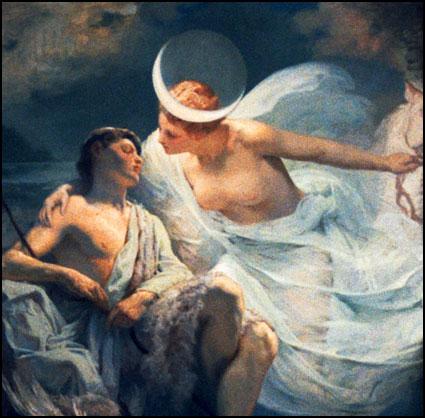|
Amm (god)
ʿAmm ( xsa, 𐩲𐩣, translit=ʿm; ar, عمْ) was a moon god worshipped in ancient Qataban, which was a kingdom in ancient Yemen. 'Amm's name stems from the Arabic word for paternal uncle. The inhabitants of the kingdom referred to themselves as the ''Banu Amm'', or the "Children of Amm". He was also revered as a weather god, as his attributes included lightning bolts. His consort is the goddess Asherah, and he was served by the oracle-judge Anbay. According to French archaeologist and biblical scholar Daniel E. Fleming, one possible origin for the title 'Amm or "Children of 'Amm" is speculated to have stemmed from a designation of an earlier group of people who worshiped 'Amm as a central god, with the name 'Amm simply being the title for a forgotten deity whose true designation was not known. Though 'Amm was worshipped into the time of the Qataban Qataban ( Qatabanian: , romanized: , ) was an ancient South Semitic-speaking kingdom of South Arabia ( ancient Yemen) which ... [...More Info...] [...Related Items...] OR: [Wikipedia] [Google] [Baidu] |
Moon God A lunar deity or moon deity is a deity who represents the Moon, or an aspect of it. These deities can have a variety of functions and traditions depending upon the culture, but they are often related. Lunar deities and Moon worship can be found throughout most of recorded history in various forms. Moon in religion and mythology Many cultures have implicitly linked the 29.5-day lunar cycle to women's menstrual cycles, as evident in the shared linguistic roots of "menstruation" and "moon" words in multiple language families. This identification was not universal, as demonstrated by the fact that not all moon deities are female. Still, many well-known mythologies feature moon goddesses, including the Greek goddess Selene, the Roman goddess Luna, and the Chinese goddess Chang'e. Several goddesses including Artemis, Hecate, and Isis did |
